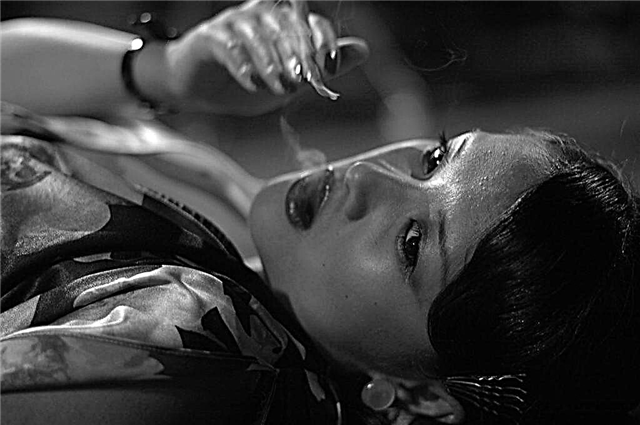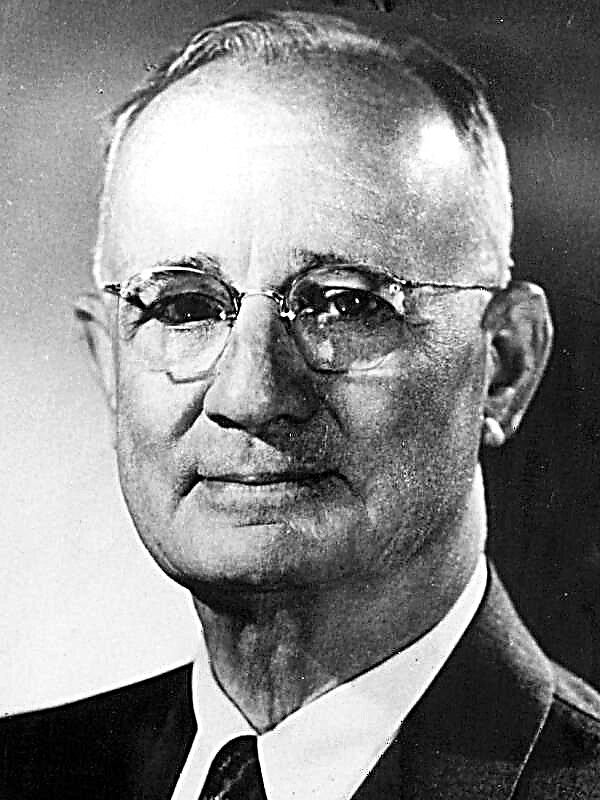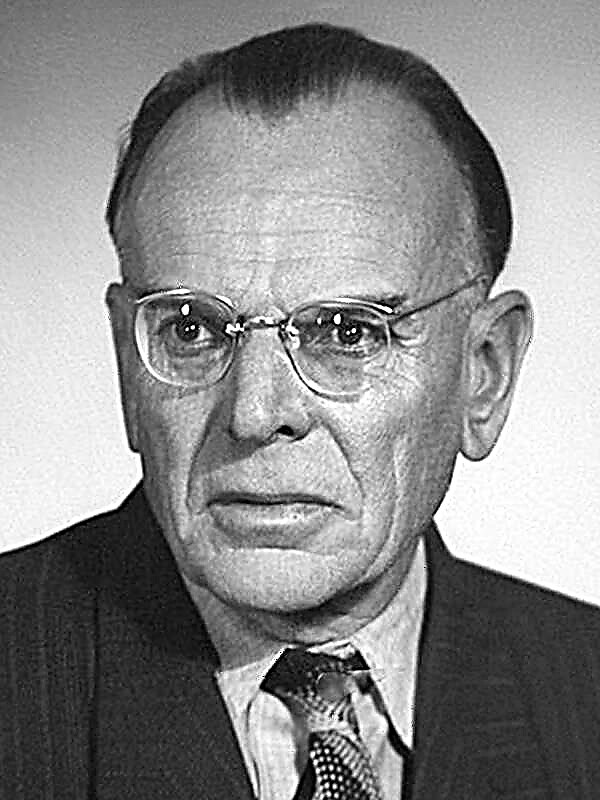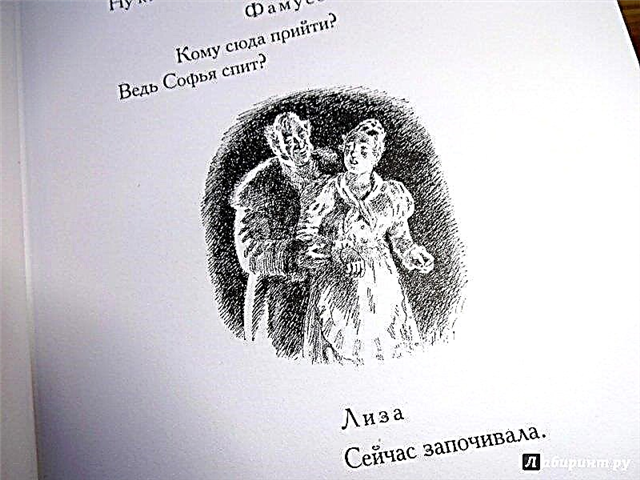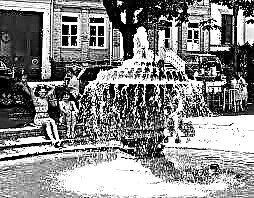“Eugene Onegin” is a verse novel written by Alexander Sergeyevich Pushkin. The book is considered one of the most significant works in Russian literature: it laid the foundation for the formation of the modern Russian language. We’ll talk more about the merits of this masterpiece in the analysis of Onegin, but for now, here’s a brief retelling of the chapters, which sets out the main events and the plot of the novel.
Chapter 1
In the first chapter, we are given the opportunity to get acquainted with the central hero of the work - Eugene Onegin. He was born “on the banks of the Neva” in a rather wealthy family. His father loved spending money, because of which he often found himself in debt, until he spent all his fortune. But his son was lucky: he is "the heir to all his relatives."
Eugene did not receive a proper education in the fields of exact sciences, but he was aware of the rules of behavior in society, for example, on what topics are best to conduct conversations and, of course, how to win the hearts of young people. In this matter, Onegin was a master, he knew how to fall in love with any girl without any consequences for himself.
Eugene was very fond of idle life, because he often attended social events: balls, theaters and evenings in salons. The young man monitored his appearance, supporting him in perfect condition, so that no one dared to doubt his high position. The young man followed the fashion: "How London dandy is dressed." Therefore, until the morning I was at balls and receptions and returned when the other townspeople just got up. And so the young Onegin passed every day.
Over time, from idleness, the hero plunged into the “Russian blues”, life began to seem monotonous to him and lost its meaning (and this is why). The hero hopes to find his salvation in literature, reads a lot and tries to write himself, but all in vain. From a cheerful young man who was the soul of the company, he turns into a sullen and gloomy person.
Eugene decides to leave the city, but his plans collapse after the news of the death of his father. Onegin has to give all the money available in debt. The young man remains in his hometown, without money and hope for the future.
Soon the hero finds out that his uncle is close to death. He goes to his village, there he is also languishing with boredom. But a relative bequeathed him a great fortune.
Chapter 2
Eugene decided to restore new order in his estate, in order to somehow occupy himself in the village. Onegin introduces quitrent instead of corvee, thereby making life easier for his peasants. After such changes, the neighbors begin to shy away from the new neighbor, because in their opinion he is too liberal towards the peasants. Eugene, too, was in no hurry to establish relations with his environment, on the contrary, he avoided him in every possible way.
The usual flow of time was disrupted by the arrival of Vladimir Lensky, who had been in Europe for a long time. This is a hero with a romantic and subtle nature, writing mediocre verses and looking for the meaning of his existence. In those parts, he was considered an enviable groom.
Despite the differences in age and worldview (here is a table with differences and similarities), young people became friends "out of boredom." Lensky shares his creations with Onegin, reads his poems to him. Eugene considered the friend’s behavior to be naive, but decided that over time, life itself would delight the young man. Soon, Eugene realized that Vladimir was in love. The subject of adoration of the young man was Olga Larina, with whose family Lensky was friends since childhood. Parents from an early age prophesied children marriage.
The author introduces us to the Larins sisters. Olga Larina is a playful and flirtatious younger sister, she is characterized by good looks and a cheerful disposition. Her sister, Tatyana, was completely different. The girl was enclosed in herself, sad, thoughtful, often spent time alone. Tatyana was alien to ordinary girlish amusements; she preferred reading books to them.
Polina Larina is the mother of Tatyana and Olga. In her youth, her heart belonged to an unknown sergeant of the guard, but her parents gave her to marry Larin. At first she frantically rebelled, but eventually got used to such a fate, taking her thoughts into worries about the household. The father of the family lived a long quiet life until his death (here is a description of the whole family).
Chapter 3
Lensky often visits the Larins; the young man likes to spend time in a calm, homely atmosphere, which surprises Onegin. Eugene shows interest in his beloved friend and asks them to introduce. While visiting this family, he notices the older Larina, her sad look and silence. Onegin’s visit gives rise to various rumors in the village about his engagement with Tatyana. The girl herself fell in love with the guest and endowed him with the features of her favorite literary characters.
At night, when the dream did not want to come, Tatyana heard the story of her nanny: her relatives gave her to marry at a very young age, and she never thought about any love. The magic of the night prevailed, and Tatyana composed a love letter to Eugene. The message comes out a bit naive and desperate, in it the heroine presents her life in detail, if Onegin had not met in it.
Tatyana begs the nanny to convey a message to our hero, in the hope of an early reply that did not follow. A few days later, Eugene visits the Larins' house, the young lady runs away in a fright into the garden, but their meeting is inevitable.
Chapter 4
Onegin did not want to offend the girl, because he decides to gently communicate with her. He says that in his life another fate is assigned and the family fits into it. He appreciates Tatyana, but loves her with brotherly love. He instructs her in the future to try to be the mistress of her feelings, otherwise such actions may compromise her: "Not everyone, as I, will understand."
The heroine, after a memorable conversation, became even darker. There were rumors in the village, everyone was worried about the future of the girl, she could fit to get married. Meanwhile, the relationship between Vladimir and Olga became closer.
Winter came, Onegin began to appear less often in society, devoted more time to reading and walking around his possessions. One of these days, Lensky visits him and announces an imminent marriage, recalling that Eugene is also invited to Tatiana’s name day.
Chapter 5
Tatyana, being an ordinary Russian girl, sacredly believed in Epiphany fortune-telling. In the twilight hour, the girl hides her mirror under the pillow.
In a dream, the heroine walks on the banks of the river and on the other side notices a bear, he helps her get across the bridge. The beast continues to follow the girl, so they get to the hut, in which, judging by the clink of glasses, a feast passes. The bear tells Tatyana that his godfather is here. Glancing through a crack, the girl notices all evil, and at the head of the table Onegin is the master of the feast. Eugene sits Tatyana at his desk, protects her from monsters and looks after him in every possible way. The room includes Olga and Vladimir. Eugene is angry and deprives the guest of his life with one swing of a knife (here is an analysis of the episode).
Waking up from such a terrible dream, Tatiana tries to decipher it with the help of a book for the interpretation of dreams.
The celebration of the heroine’s name day begins. Guests gather, stay and Onegin with Lensky. Larina is embarrassed by the presence of a young man that angers Eugene himself, and he decides to take revenge on his friend for putting him in such an unpleasant position. He “hit” Olga, flirted and whirled in dances, and the groom himself was not worthy of attention.
At this moment, Lensky decides to duel, he is deeply offended, taking the joke as an insidious plan.
Chapter 6
Lensky leaves the Larins' house, Eugene, noticing this, quickly loses interest in Olga and also soon goes to his home. Soon Onegin receives news of a duel. The young man gives his consent, but nevertheless blames himself for such recklessness that he made fun of his friend’s feelings.
Before the duel, Lensky decides to visit his beloved, hoping to offend her feelings and embarrass her for treason. However, the girl dispelled all his doubts. Vladimir can no longer cancel the duel, but he writes a letter to Olga asking him to visit his grave and pay tribute in case of his death.
The time has come for a duel. Lensky only manages to raise his gun when Onegin has already fired a shot - the unfortunate young man dies instantly. Eugene in unconsciousness leaves the scene of the murder.
Chapter 7
After the death of Lensky, his bride pretty soon recovers and leaves the village with her cavalry husband. And her sister is still grieving over her chosen one. Once, a girl accidentally goes to his house, and the courtyards greet Tatyana and let her in. The guest is fascinated by the rooms and numerous books on the shelves, which she eventually begins to study in order to understand the thoughts of her lover.
Concerned about the fate of the eldest daughter, Larins decide to go to Moscow to find her a groom. Tatyana is led by various acquaintances and in every way they can match the girl. For a long time, no one attracts Tatyana's attention, and gentlemen do not look at a quiet person standing aside. She misses and yearns for her native village.
But once an aunt introduces her to one general.
Chapter 8
After a long period, Onegin returns from wandering abroad. The hero has already turned into an adult man. He habitually goes to a secular reception. There, all eyes are fixed on the general and his wife, that very silent and sad Tatyana. He is unable to believe that many years ago this young beautiful woman so ineptly brought down her childish declaration of love on him.
In the morning the hero receives an invitation from her husband Tatyana. Seeing a woman this time, Eugene realizes that this lady does not pay any attention to him, but he loves her. Then the man composes a love note, and then two more, but there is no answer.
Then he decides to come to Tatyana without an invitation and sees how she is crying over his message. The hero rushes to her feet, but Tatyana stops the man and insists that he give her the word, as she once heard in the garden. A woman pours out her soul: she loves Onegin, but now she is a married lady, and she will always be faithful to her husband (and this is why).
On this sad note, the author says goodbye to his hero (we described the meaning of the ending here).





